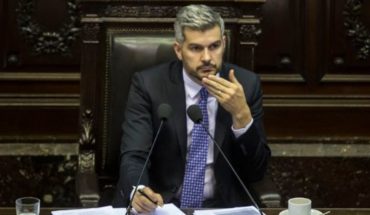
Leading has always been a challenging task. Leading schools is an even greater challenge, but leading schools in tumultuous times in the midst of a pandemic could, for many, become an almost impractical and impossible act to materialize.
Too many things covid-19 has shown in education. On the one hand, how the different conditions of students and their families have exacerbated the gaps already in our country, both in access to information and in learning opportunities. On the other hand, the difficulty that exists between families and schools to build real bridges of understanding and work. The latter, evidenced in the judicialization and radicalization of the positions between payment for educational services versus the product that is delivered by them. But above all, this pandemic has made it clear, the real management that educational leaders have had in times of crisis, within their community.
John C. Maxwell, American writer and lecturer, expert on leadership issues, argues that the act of leading feels like a constant juggling given the various fronts that need to be addressed. Leading schools these days is indeed perceived as juggling, only now – in the midst of the health crisis in which we are – to this circus act that we already knew, Chinese dishes and fireballs must be added as well.
With the suspension of classes and confinement due to quarantine, the teaching and learning processes have had to be redesigned for remote work from homes, that is, without the necessary physical contact and, in many cases, with serious difficulties to accompany students and families due to connectivity problems and lack of inputs. What we used to know as good practices and procedures within a school, from one moment to the next, were transformed into processes that must be executed and monitored remotely. The educational model on which we based our paradigm changed and, with it, the notion of leadership that is required today.
We could draw up an endless list of challenges for current school leaders, those related to the technical and socio-emotional management of all their stages, management of dichotomous expectations among their faculties, frustration and tiredness of the faculty and, on some occasions, hopelessness installed within the community. However, I would like to focus on the opportunities inherent in any process of radical change, but to do so, I propose two central questions first: What is it meant to lead? And lead for what?
What is meant by leading?
There is consensus that leading is influencing. And in school contexts, leadership translates into the influence exerted within a community in a consistent and focused way, with the purpose of improving the teaching practices and learning achievements of its students. Generally speaking, this type of pedagogical or instructional leadership has central purposes, such as: setting educational objectives, planning the curriculum, evaluating teachers and teaching, and promoting professional teaching development.
To achieve the realization of these purposes, leadership can no longer be associated with an exclusive practice of the director, but rather, it must be a characteristic of the organization.
It is, then, a question of influencing others to do so. From this perspective, we will understand by leadership all those practices performed by both managers and their classroom teachers, always seeking, improve the learning achievements and school experience of their students.
Now, lead for what?
In simple, lead to help understand that we have a unique opportunity as educators. In times when the health crisis has shown us that what used to make sense to all yesterday, today it no longer has it. Just as it has no purpose in wanting to replicate the physical school to the interior of each home, because we know, (despite all the efforts we can make), that the school cannot simply be moved. So the role of leadership today should focus on asking deep questions, the same ones we rarely ask in a “normal” year.
Today, we have the enviable opportunity to examine our resume and put it the service of the development of life skills, renouncing the logic of moving forward non-stop and memorizationdata for further evaluation. We have the opportunity to generate contextualized learning based on this terrible crisis and promote an interdisciplinary, flexible and different-looking teaching, designing simple but challenging tasks, which will help us develop conflict resolution, critical thinking, empathy and social awareness, using what we live with triggers today. In short, we have the opportunity to rewrite what we do and understand by educational mission.
This requires leadership, to be able to motivate and incentivize such questions throughout the school community. We need leaders throughout each school who are able to blow the embers together to ignite again and – more strongly – the true sense of educating.
As we have seen, leading within an educational center is a highly complex task. These days the pandemic demands and further strains the processes that are in and of itself complex. But when we are able to conceive leadership as an opportunity for others to influence and collaborate in the realization of a shared vision, especially one that focuses on the opportunity to rewrite the school, there and only there, our act of juggling will not only have fewer elements to balance, but will have a deep meaning, making all our effort , it’s really worth it.
The content poured into this opinion column is the sole responsibility of its author, and does not necessarily reflect the editorial line or position of El Mostrador.





